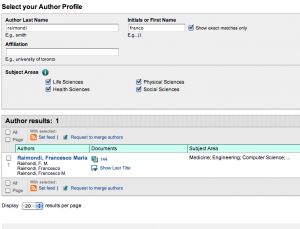Dear students,
given that the deadline for choosing a supervisor is coming up soon, a friend of mine has suggested that I post a “serious” set of recommendations for now… So here are the suggestions I have (and that I keep repeating to my students):
First of all, try to think of the following:
- What would you like to do? I don’t mean what would you like to do now, I really mean: what would you like to do when you finish your studies? Do you want to be a programmer? Do you want to be an analyst? What is your favourite activity? Think of your future, and use the final year project as a way to reach what you want to do / what you want to be.
- You need to do a good job in your final year project: not only it will contribute substantially to your final mark, but you can also use your project in your job applications. It needs to identify a problem and you need to show your solution, and more importantly your path to reach that solution.
At this point, you can start looking for your supervisor. Look for someone with a research interest close to the topic you like, or someone teaching a similar subject. Have a look at the staff pages (start from http://www.cs.mdx.ac.uk). Don’t be shy: send emails and, more importantly, go to lecturers’ office hours! (check the right-hand side for my office hours).
- Be prepared to change your topic. In a number of cases your project may be too ambitious for the short time you have, or maybe a solution exists already (in this case you could try to improve the solution)
- Don’t try to copy someone else’s structure or topic: remember, you have to do what you like!
- Have a look at the material that is available online (myunihub). In particular, have a look at how you will be assessed: it is important to develop a product or to obtain results, but it is equally important to do a literature review, requirements anakysis, and design. An excellent piece of software without documentation is not enough, remember that you need to show your path.
